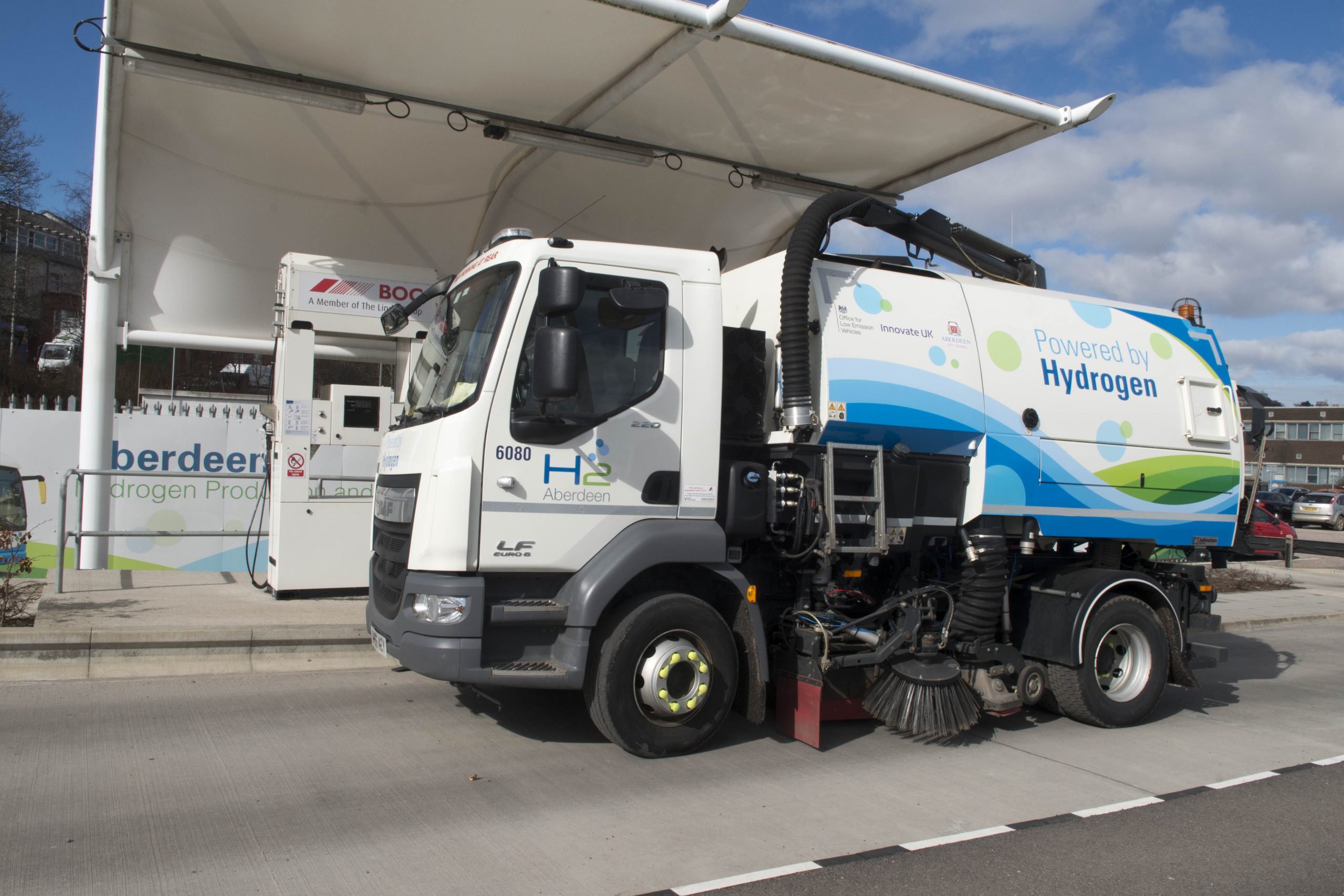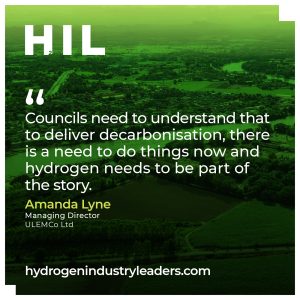ULEMCo: Helping to Deliver a Thriving Hydrogen Economy in Aberdeen

ULEMCo has been awarded a major fleet-wide contract by Aberdeen City Council for its hydrogen dual-fuel utility vehicle conversions. Hydrogen Industry Leaders spoke to ULEMCo about the hydrogen dual-fuel approach and how it can be used to support councils in meeting their decarbonisation targets.
The contract, initially for 35 vehicles, reflects the commitment to a hydrogen-based strategy and will see Aberdeen City Council operate the largest fleet of hydrogen vehicles in the UK.
ULEMCo has supplied heavy-duty vehicles to Aberdeen City Council previously, and these have been running on the roads for over a year.
This new order, part of a Fleetwide Conversion commitment, includes further refuse collection vehicles, road sweepers, and various other utility trucks, including tippers and tractors.
How is ULEMCo’s Technology Helping To Meet Decarbonisation Targets?
Hydrogen Industry Leaders spoke to Amanda Lyne, Managing Director at ULEMCo Ltd, about the contract and how ULEMCo’s H2ICED hydrogen dual-fuel technology is offering a practical route to saving up to 40 per cent of carbon emissions across whole fleets.
The converted vehicles will create significant demand for the growing Hydrogen Hub in Aberdeen, supporting the Council’s commitment to delivering a thriving hydrogen economy in the region and creating the demand for more highly skilled jobs.
Amanda began by explaining how important the relationship with Aberdeen City Council has been: “We have been working with Aberdeen City Council almost since the start of the company, and what is really important is that the Council, for all of that time, have understood the role that hydrogen must play in decarbonising their fleets.”
Aberdeen City Council have always had an appreciation of the role that hydrogen can play, particularly in heavy-duty vehicles.
The Council’s investment in the companies’ technology will help to build significant demand for hydrogen, which in turn will create base load demand for scaled investment for infrastructure suppliers to provide more refuelling, for example.
Aberdeen City Council is targeting the assets that are hard to decarbonise, such as tractors and tippers, as well as converting further refuse vehicles and sweepers. Amanda revealed that this is where ULEMCo comes in.
She said: “When you wish to use hydrogen to decarbonise your fleet, you must do it now in order to deliver carbon saving. The benefit of our hydrogen dual-fuel technology is that we can do it on existing vehicles or new ones. We could do it anywhere there is a diesel vehicle.
“When you look at your asset replacement programme and your decarbonisation targets, you’ve got a fleet of vehicles you need to replace in the next couple of years. You can’t afford to do that with R&D technology and future technologies because that is not actually available.”
By using existing engine technology, the cost of becoming hydrogen enabled is minimal in comparison to other low-emission options, which provides a great first step into achieving substantial emission reduction now, whilst other technologies are still in development or too expensive.

Aberdeen Is Important To Facilitate The Rapid Growth Of Hydrogen
Reliability of hydrogen production and supply is key to building the demand because companies need to know that they can deliver on their decarbonisation commitments without risks.
Amanda explained that having multiple hydrogen hubs in one region will support this: “Aberdeen have had the hydrogen station for the busses right next to their depot for years. Through the deal with BP to establish a hydrogen hub, many hydrogen hubs will be delivered across the region, which is needed to boost the hydrogen economy.”
If you’re in a local area, one hydrogen station doesn’t give you a hydrogen economy, you need to have somewhere else. If that hydrogen station is not working or something, then you need somewhere else to fill up.
Having benefited from investment by Edinburgh-based angel investment syndicate Equity Gap, and with Scotland’s national economic development agency Scottish Enterprise as a shareholder, ULEMCo sees Aberdeen and the rest of Scotland as key areas for investment for their conversion centre roll-out programme.
Therefore, the company sees the region as important to facilitate the rapid growth of hydrogen deployment and deliver cleaner mobility.
Going forward, Amanda said that ULEMC is anticipating that the partnership between Aberdeen City Council and the company will grow further, helping to prove this growth of hydrogen deployment.
She explained: “We can do more conversions for the Council, but also in the wider area as well. Once there is hydrogen infrastructure in an area, our ambition is to get as many people as possible in that area using it if they are suitable to use it.”
When it comes to other regions in the UK, Amanda revealed that it is important that Councils realise a change needs to happen now for them to meet their decarbonisation targets: “Councils need to understand that to deliver decarbonisation, there is a need to do things now, and hydrogen needs to be part of the story.”
Why Is Collaboration So Important To See A Hydrogen Future?
Many hydrogen hubs have sprung up across the world, showing the great potential of a hydrogen future. While these projects could kickstart clean hydrogen adoption at scale, the collaboration between industry, policymakers, and other partners is key to success.
Amanda discussed how collaborating and having an open mind is essential to seeing the hydrogen industry grow: “You want to collaborate because what we are doing in terms of decarbonisation is a hard thing to do and therefore, you need all the help you can get. You also need to keep an open mind and be innovative in your approach by nature.”
If you’re innovative in your approach, you want to collaborate with other people that have different solutions and you can try something different, ultimately then you can make something happen.
With collaboration from policymakers, energy companies and stakeholders, the journey to a more sustainable future and strong hydrogen economy is showing great potential.

